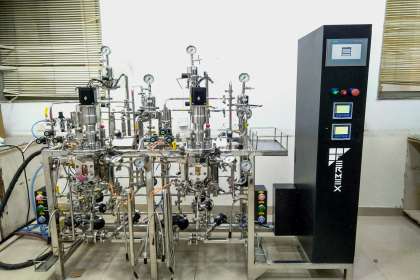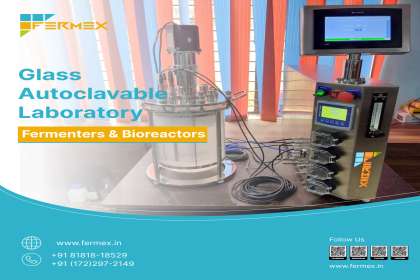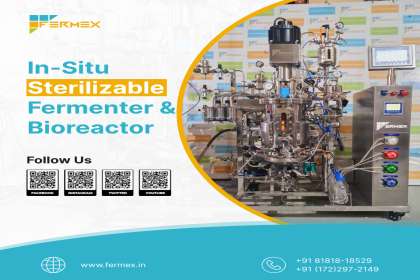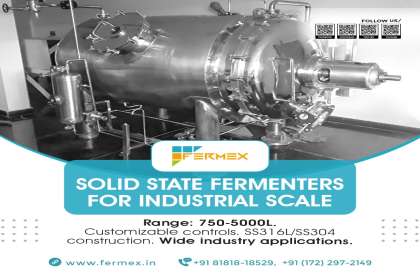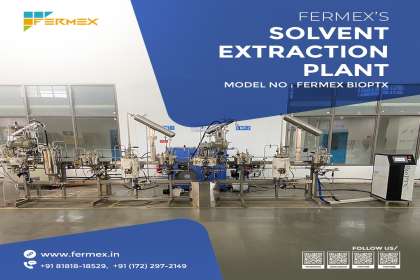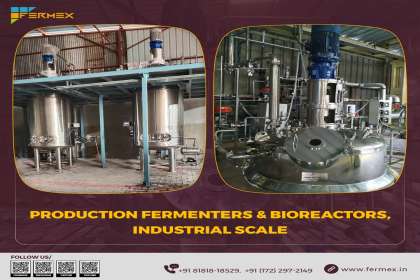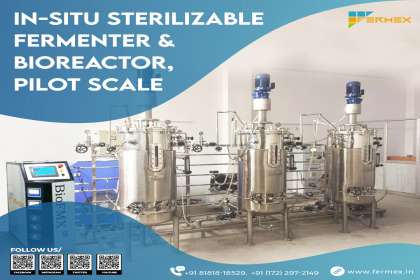Fermex Fermenters: Enzyme Production and Extraction

Use of Fermenters for Enzyme Production
Fermenters play a crucial role in the production of enzymes through fermentation processes. Fermentation is a biological process in which microorganisms, such as bacteria or fungi, are used to convert raw materials into desired products, including enzymes.
- The use of a fermenter in the extraction of enzymes is similar to the production process. However, in this case, the fermenter is used to culture and propagate the source material containing the enzymes, such as plant tissues or microbial cultures.
- The enzyme extraction process involves breaking down the source material and isolating the desired enzymes using methods like cell disruption, filtration, chromatography, or extraction with solvents.
Key stages involved in the Production of enzyme or extraction of enzyme.
Enzyme Selection: Identify the specific enzyme needed for the application from various sources.
Microorganism Selection: Choose a suitable microorganism strain that naturally produces the enzyme or can be genetically modified.
Microorganism Cultivation: Grow the selected microorganism in a laboratory or small-scale fermenter with a nutrient-rich growth medium.
Scaling Up: Transfer the culture to a larger fermenter or bioreactor and optimize conditions for enzyme production.
Fermentation: Inoculate microorganisms into the fermenter, and allow fermentation to produce the desired enzyme.
Monitoring and Control: Continuously monitor and control parameters like temperature, pH, oxygen, and nutrient levels for optimal conditions.
Harvesting: Separate and harvest the enzyme from the fermentation broth using methods like filtration or centrifugation.
Purification: Remove impurities from the harvested enzyme using techniques such as filtration, chromatography, or precipitation.
Concentration: Increase enzyme content by methods like ultrafiltration or evaporation.
Formulation and Stabilization: Prepare the enzyme in a suitable form for its intended use, such as liquid or powder.
Quality Control: Implement quality control measures to ensure the enzyme meets specifications, including activity, purity, and stability.


Fermex fermenters for Enzymes production
- Solid State Fermenters (Lab Scale)
- Solid State Fermenters (Industrial Scale)
- Submerged Insitu Fermenter (Lab scale)
- Submerged Insitu Fermenter (Industrial scale)
Benefits of Fermex Fermenters for Enzyme Production.
Controlled Environment: Fermenters offer precise control over growth conditions (e.g., temperature, pH, oxygen), enhancing enzyme production.
Scalability: They come in various sizes for easy scaling up or down according to production needs.
Increased Efficiency: Fermenters promote efficient mass transfer, mixing, and oxygenation, leading to enhanced cell growth and enzyme production.
Sterility and Contamination Control: Closed, sterilisable systems reduce the risk of contamination, ensuring enzyme purity.
Time and Cost Savings: Improved process control reduces production time and costs due to economies of scale.
Process Monitoring and Control: Equipped with sensors for real-time monitoring and adjustments to maintain optimal conditions.
Process Automation: Integration with automation systems reduces human error, improves reproducibility, and facilitates data collection for quality assurance.









